How your 'Dodgy Fire Stick' will lead the police right to your door: Insiders who know enforcers' tactics reveal the key words in text messages and seized customer database that targets viewers in new crackdown
In a semi-detached house on the outskirts of London, 'David' can get you access to live football across the world for £50 a year.
His method is an Amazon Fire Stick, usually a £40 piece of kit that puts Netflix , Amazon Prime Video, YouTube , iPlayer and more all in one place. But David's have been altered to run an app that can unlock thousands of premium channels.
The sale is anonymous, the delivery digital: a message on Facebook or WhatsApp, a PayPal transfer, a fake login that unlocks live football at a fraction of the cost. David - not his real name - is unrepentant. And he offers some blunt advice to those who buy from him.
‘If Premier League TV companies weren’t so greedy, there wouldn’t be an issue,’ he shrugs. ‘If the police knock on my door, I’d tell them to f*** off - how would they have proof of me having that subscription? I would just say, “We’re not streaming”.’
David, who uses a dodgy Fire Stick himself and supplies a dozen or so to friends for extra cash, typifies the millions tempted into the illegal market by rising subscription costs and the promise of instant access. It’s a thriving, Wild West trade in the UK, with digital piracy costing the economy up to £7billion, according to a study by the Economic Statistics Centre of Excellence.
What looks like a consumer hack, though, feeds a sophisticated criminal economy powered by remote-modified devices, wholesale reseller networks and subscription schemes that can generate millions.
Sky Sports pay billions to screen the Premier League and have their own in-house team to crack down on piracy
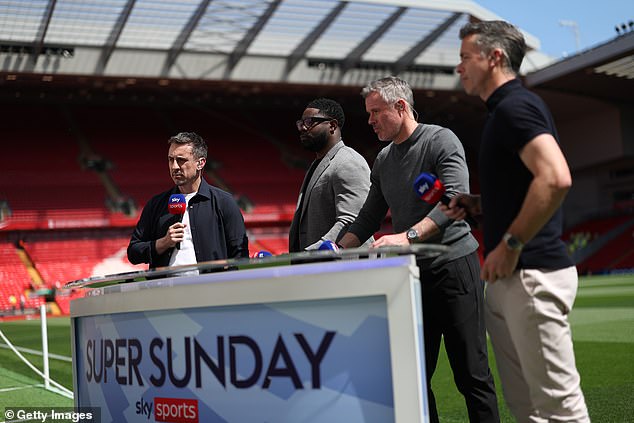
'David', who uses a dodgy Fire Stick himself and supplies a dozen or so to friends for extra cash, typifies the millions tempted into the illegal market by rising subscription costs
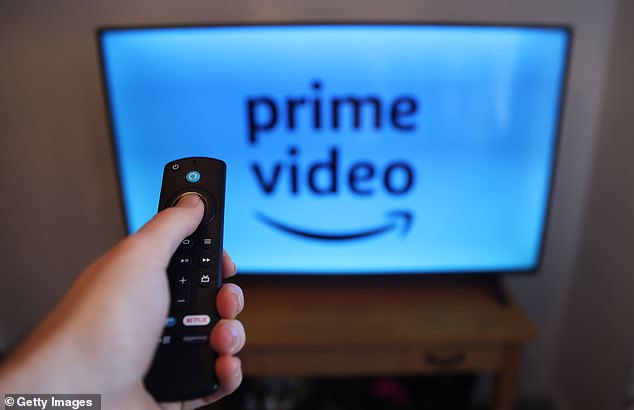
And for the past decade, a shadow war has been raging — led not just by police, but by specialist private investigators and sports TV rights holders who treat digital piracy as organised crime.
The Premier League is a global juggernaut. Last year, the league’s broadcasting rights were collectively worth £9.2billion in domestic and international deals. The League’s matches are a premium product, sold in markets across Asia, North America, the Middle East and Europe, with broadcasters fiercely protective of their investments. Sky Sports and the League have their own in-house teams to crack down on the issue.
Criminals are prepared to break the law for a slice of this billion-pound industry, while punters are enticed in a bid to save hundreds on annual sports subscriptions.
A Daily Mail Sport investigation can now reveal how a quiet trade in modified devices has sparked a digital arms race headed by an ex-FBI officer — pitting tech-savvy criminals against Premier League investigators armed with forensics, private prosecutions and police raids.
And how punters could be one knock on the door away from being 'fingered' by high-tech, digital search algorithms.
The business of illegal sports streaming is a lucrative one. In July, 36-year-old Stephen Woodward was jailed for three years after making £1.1million from three illegal streaming sites over a seven-year period.
He used the funds to buy designer clothes, jewellery, holidays and a Jaguar F-Type V8 coupe worth £91,000. The £1.1m was held in 15 different bank accounts. His brother, Christopher Woodward, received £126,000 derived from the sales of the illegal streaming websites.
In a separate case, in November last year, Jonathan Edge was jailed for three years and four months for selling Fire Stick devices he reconfigured to allow people to illegally stream Premier League football matches, which he advertised on Facebook.
He ignored multiple warnings about the illegal activity, which were referenced by the judge and treated as an aggravating factor in sentencing.
Thanks to broadcasters like TNT Sports, the Premier League is a global juggernaut. Last year, the league’s broadcasting rights were collectively worth £9.2billion
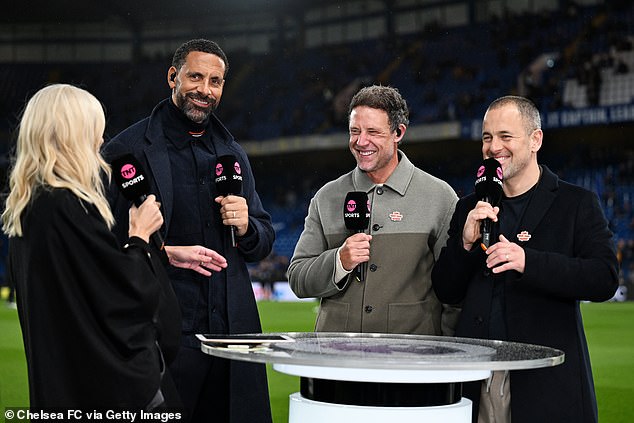
For the past decade, a shadow war has been raging — led not just by police, but by specialist private investigators and sports TV rights holders who treat digital piracy as organised crime

A quick browse on Facebook for a login to access illegal sports streaming brings up hundreds of posts.
On a group called Fire Stick Streaming with 3,000 members, one ad reads: ‘I have worldwide 24,000 channels with all the sports channels.
‘You download the app on the device, I’ll send you guidelines and then I’ll send you username and password URL to get the login info for app.’
The comments section is filled with ‘how much?’ or ‘great service’.
It is not particularly hard to set up, as David casually explains.
‘You buy the Fire Stick (which costs around £60) and download a certain app,’ he says, referring to an unnamed app on the Amazon app store which gives access to the channels. ‘You need a fake username and password to access the subscription, which is what the user buys off me.
‘Unless you buy it from someone you trust, it could stop after a week and then they’re gone.’ He even offers a free 48-hour trial.
There’s various ways to gain access. Punters can pay an illegal streamer to remotely modify the software on the Fire Stick, allowing access to live games that are not available for broadcast in the UK.
Another option is to buy a Fire Stick that has already been modified and is ready to plug into a TV.
Other pirates charge punters for a username and password to login into an app that instantly has every live game at their fingertips - this is the route followed by Daily Mail Sport to prove just how easy it is to get behind the Premier League paywall.
After contacting a seller on WhatsApp through the recommendation of a friend, a few messages back and forth results in the seller providing his PayPal details for a £50 payment.
The Premier League under CEO Richard Masters, seen here during Liverpool's title celebrations last season, are targeting illegal streamers
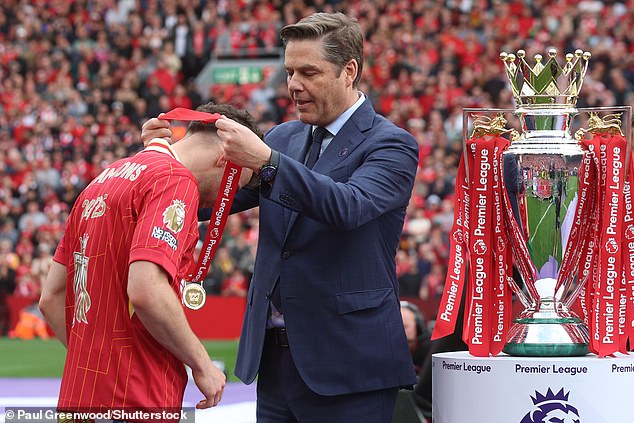
Once he’s been paid, he provides instructions on how to reconfigure a Fire Stick, bought on Amazon, to download third party apps outside the official Amazon App Store with a few simple key strokes, as well as a username and password.
We download the app, inputting the login details provided. Access to dozens of sports channels across the world is now unlocked, including Sky Sports, TNT Sports and ESPN.
It is that simple.
The ecosystem is a complicated mix of cowboy entrepreneurship and high-tech evasion — a digital pond in which the broadcasters' detectives fish.
The intelligence-led investigation service FACT, its logo featured at the beginning of many blockbuster films, represents the UK’s pay-TV broadcasters and rights owners. The Premier League and Sky have their investigators, too, but have been a client of FACT’s for the past 18 years.
They are aggressive in their strategy.
Since 2017, the League has used High Court-ordered blocking injunctions to force UK internet service providers to take down illegal streams in real time. During the 2024-25 season alone, more than 600,000 illegal streams were blocked or removed by their in-house team, which is supported externally. Each individual stream could be accessed by multiple users.
Internationally, they have partnered with authorities in Asia, launching repeated campaigns — like last month’s ‘Boot Out Piracy’ initiative in Thailand — to raise awareness among fans. Supported by players such as Martin Odegaard and Dan Burn, the campaign highlights not just the legal risks, but the malware and scams often hidden behind illegal streams.
Arsenal star Martin Odegaard was among the players who fronted the Premier League's 'Boot Out Piracy' campaign in Thailand

Modified streaming devices frequently come pre‑loaded with third‑party apps, or software outside official app stores. Security experts warn these can carry trojans, spyware or even let attackers access home network devices, which can allow criminals to harvest personal or banking information.
‘You could liken us to a mini police force in that we are intelligence led,’ says FACT chairman Kieron Sharp.
FACT’s investigators treat seized devices like crime scenes. Daily Mail Sport visited their west London office, where hard drives and phones wrapped in plastic sit waiting in a secure room which only three employees have access to. It has a handful of PCs in there and is split in two, one half mirroring a typical office.
The other half looks like a postal depot, shelves holding parcels of kit sent from police forces across the country. The real work often begins at the keyboard, the hardware that holds the evidence and clues that can incriminate the streaming criminals hiding in the shadows.
Daily Mail Sport has been given a detailed brief on just how investigators begin their cyber chase.
‘We do our own computer forensics,’ Sharp says. ‘When we do a job with the police, and the computers are seized from whichever place has been raided, we take the computer forensic work on and provide that as evidence back to the police.’
A starting point of a trillion bits of data would seem unfathomable, yet FACT has built bespoke software and search algorithms that trawl social media, message logs and device storage for tell-tale signs.
‘Sometimes we would be doing that in the native language of the person that we suddenly get interested in. There are many, many different ways of obtaining information,’ Sharp explains.
‘It’s usually some form of search algorithm which enables you to find information which you may not find through other means.’
FACT - seen here visiting the home of an illegal streamer - represent the UK’s pay-TV broadcasters and rights owners

An unnamed investigator described the process in forensic terms: feed the systems with search terms you know will appear — the stream name, the subscription title, admin usernames — and let the machine surface the needles in the haystack.
A common search term is ‘illegal’. He remarked: ‘You would be surprised by how many suspects message others with phrases like, “This is illegal”, or “Or we need be careful as it’s illegal”.’
Sharp explains: ‘The importance of doing word searching is that if you seize a computer and there's like three terabytes of data on it, you're never going to search the whole computer. You're only going to search the computer for your terms.
‘You're never going to know what's fully on it. So you have to concentrate on the evidence. You'll know the name of the stream, the name of the subscription they're selling, the names of the people involved. You might even have a customer database.’
The digital breadcrumbs are often enough to map entire operations. FACT matches messaging threads to payment receipts, to server logs, to the IP addresses that delivered feeds. A single seized device can quickly reveal resellers, overseas suppliers and customer lists — the very threads that transform a small-time seller into a prosecution target.
The excitement of the hunt can be felt from Sharp as he describes the process that leads from a laptop used in a domestic kitchen to a gang feeding a global demand for cheap access to sport worldwide. It’s a cyber-chase as terabytes of data are being trawled through for that one word that could lead to an arrest.
‘This is complex because there's so many people involved,’ he says. ‘There's a lot of people working together that perhaps never even met. They are faceless on the internet. So there's a lot to investigate… to make sure you capture all the evidence.
‘From one person, that web can then extend to dozens of people. Anti-piracy investigations can take a significantly long time to build because evidence is often spread across multiple people, devices and jurisdictions.’
Once the evidence is compiled, FACT takes it to its partners: the Premier League, broadcasters like Sky, and often the police - who conduct the raids.
It is believed that a live football game can draw 'tens of thousands' of viewers to illegal streams
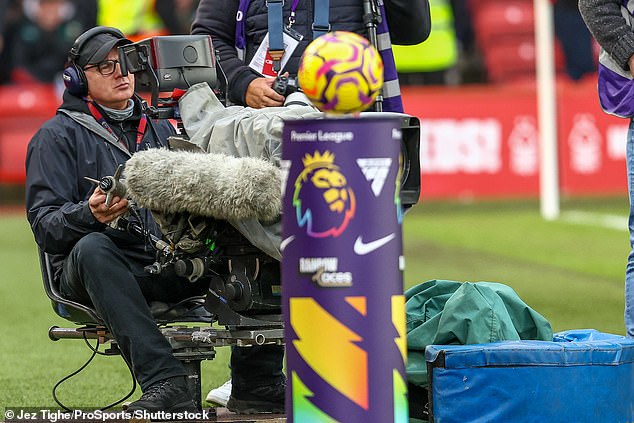
Around 59 per cent of UK Fire Stick owners admit to using the device to watch illegal streams
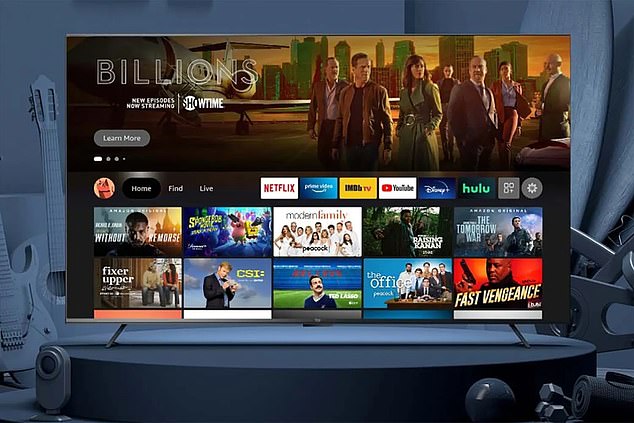
It’s understood that fees paid by organisations to FACT can each reach in excess of £500,000 annually depending on factors such as the number of private prosecutions.
Not every case is suited to public prosecution. The Crown Prosecution Service and police often lack the specialist technical teams needed for long, complex IP cases — so rights-holders, like the Premier League, fund private prosecutions.
‘If they all approve (CPS and police), then we can take it as a private prosecution,’ Sharp says. ‘We engage a specialist solicitor, and they will engage a specialist counsel. These are people we know, we've worked with them in different cases. I can't think of a case in the last 15 years where we’ve lost and someone got away with it.’
Across the world, sports broadcasting is a gargantuan industry, with the total value of media rights passing the £44bn mark last year.
Just last month, the Alliance for Creativity and Entertainment (ACE) — an anti-piracy coalition powered by the Motion Picture Association which has the world’s largest broadcasters as members — teamed up with police in Egypt to shutdown StreamEast. The platform is the world's biggest destination for illegal live sports streaming, which had been visited more than 1.6 billion times in the past year.
According to ACE, traffic to StreamEast's various domains had originated primarily from the UK, US, Canada, Philippines and Germany.
Motion Picture Association chief content protection officer Larissa Knapp told Daily Mail Sport : ‘It took us about a year to actually be able to identify where exactly they were.
‘The StreamEast brand is much like Xerox or Kleenex, right? Expect it's a name which different people use as there’s no trademark etc.
‘I was an FBI agent for a little over 27 years before I took this job. The digital breadcrumb trail is a lot easier to follow than back in the day.
Sunny Kanda (pictured) was jailed for two years earlier this year for selling 'dodgy' Fire Sticks
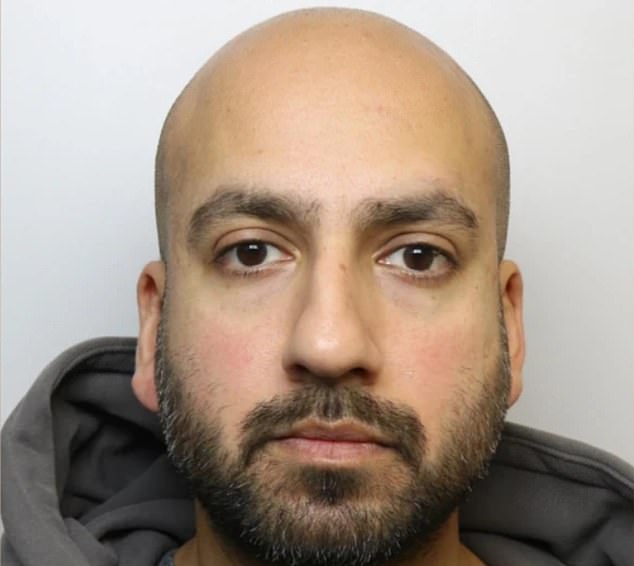
‘There's an incredible amount of data that your phone collects and transmits, whether it's geolocation information in embedded photos, whether it's you visiting particular websites and leaving comments - all of that digital dust, you can stitch together to figure out where a person is.’
In Spain, La Liga have their own in-house team of around 50 people split between different departments such as lobby and legal action across global offices including Mexico, Argentina and the UAE. A Saudi Arabia office is next on the agenda.
Instead of hiring the likes of FACT, they do the investigative and legal work themselves. It’s understood that they lose over £525m a year to piracy; it’s a battle they take seriously.
It is understood both La Liga and the Premier League share intelligence with each other, while La Liga has tried to engage both Serie A and the Bundesliga in working against the pirates. Those leagues are said not to see the issue as as much of a priority, allocating fewer resources.
For rights-holders, the objective is clear: make piracy riskier, harder, less profitable.
But for the everyday fan, the dangers are often invisible. Joe, a 70-year-old sports fanatic from south Glasgow, learned that lesson the hard way. Retired, with subscriptions eating into his pension, he relied on his grandson Paul to set up an illegal Fire Stick. For £70, Joe suddenly had access to all the top leagues.
Excited but nervous, Joe installed the device. Then, as he settled down for a Saturday match, he noticed a commotion outside. Police were raiding his building. Heart pounding, he feared the worst. In panic, he ripped the Fire Stick from the TV and flushed it down the toilet.
For people like 'Joe', piracy comes with unseen risks and a constant shadow of enforcement
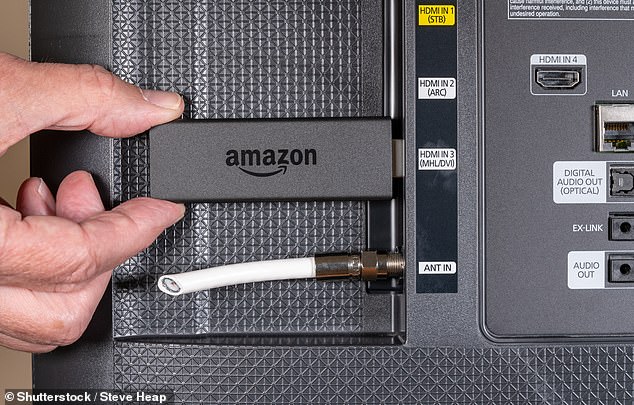
The knock never came. The police were raiding another flat. Joe - not his real name - lost £70, but the lesson lingered.
Piracy comes with unseen risks and a constant shadow of enforcement. He returned to paying official subscriptions, accepting the cost for the peace of mind that comes with lawful access.
For the many who buy a dodgy Fire Stick to watch the weekend’s football, the danger is less visible — until the phone rings or the knock comes at the door.
In this quiet, digital war, the stakes are high for both criminals and consumers.